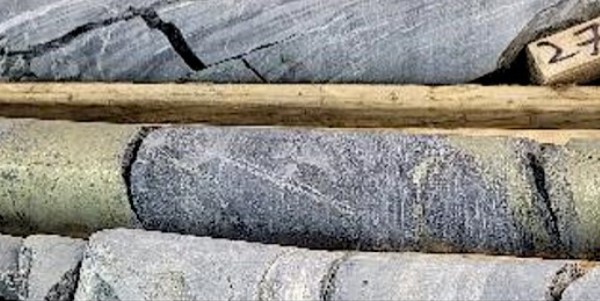Sign up for daily news updates from CleanTechnica on email. Or follow us on Google News!
When Joe Biden was a US presidential candidate in 2019, he tweeted, “Trump doesn’t get the basics. He thinks his tariffs are being paid by China. Any freshman econ student could tell you that the American people are paying his tariffs.”
Fast forward five years to May 2024, and President Biden has announced a 100% tariff that is designed to significantly increase the price of Chinese-made electric vehicles (EVs). The President has set an ambitious US goal of achieving a carbon pollution-free power sector by 2035 and a net zero emissions economy by no later than 2050. With these goals in mind, it can seem counterproductive for the US to block low-cost EVs — even if they’re from China, a country that seems to threaten the nascent US EV industry.
Tinglong Dai, an expert in global supply chains from Johns Hopkins University, however, argues that the Biden tariffs can succeed in giving the US EV industry room to grow. Without the tariffs, Dai explains, US auto sales risk being undercut by Chinese companies, “which have much lower production costs due to their manufacturing methods, looser environmental and safety standards, cheaper labor, and more generous government EV subsidies.”
By imposing tariffs early, the Biden administration hopes to prevent the US market from becoming saturated with low-priced Chinese EVs, which could undercut domestic manufacturers and stifle innovation. Instead, the tariffs have the potential to ensure a stable and secure supply of components through domestic manufacturing and could mitigate the risks associated with global supply chain disruptions and geopolitical tensions. “Biden’s move might encourage similar protective actions elsewhere,” Dai adds, “reinforcing the global shift toward securing supply chains and promoting domestic manufacturing.”
Conversely, while admitting that the US/China relationship is “complex,” an editorial in Yahoo! finance condemns Biden’s decision to impose 100% tariffs on Chinese-made EVs, as it “stifles the possibility of competition in the lower end of the car market and means the affordability gap will continue.” The article goes on to say that the tariffs will slow the transition to zero-emission vehicles at a time when the US needs to rapidly reduce its reliance on fossil fuels. The editorial muses that the US lost valuable time “dithering over tailpipe emissions standards while China was figuring out how to get rid of tailpipes altogether.” While it’s hard to argue the latter, the former position — that US automakers will grasp the opportunity to innovate their EV lines — is hopeful.
Chinese EVs in the US?
Tesla, GM, Ford, Volkswagen, Hyundai, and several other domestic automakers have invested tens of billions of dollars in battery and EV factories in the US. But, as the New York Times reports, with the exception of Tesla, automakers in the US, Europe, and Japan trail Chinese companies in scale, raw materials production, and key technologies.
New tariffs on Chinese EVs aim to protect the US EV industry and its automotive labor force, with top domestic EV maker Tesla generally part of the equation. Aside from the Polestar 2 and the upcoming Volvo EX30, there are no Chinese-made EVs for sale in the US.
Earlier this year, Volvo Cars announced the plan to discontinue funding its Polestar electric sports car brand. On April 5th, the automaker announced that its shareholders agreed to distribute “a portion” of Volvo Cars’ stake in Polestar to its shareholders.
“As a reminder, production of the Polestar 3 is expected to begin in South Carolina this summer, with Polestar 4 being produced in South Korea,” Citi analysts explained in a note on Wednesday. “Polestar is also looking at adding European manufacturing for future vehicles.” Nonetheless, on Thursday, Citi analyst Itay Michaeli lowered the firm’s price target on Polestar shares from $2.50 to $1.70 per share while maintaining a Neutral rating.
What about the Batteries?
Biden’s new tariffs are targeted to raise the tax on imported Chinese EV batteries from 7.5% to 25%. New tariffs to disincentivize the use of Chinese batteries and battery parts that go into effect this year also stand to increase costs for popular EV makers like Tesla and Ford by thousands of dollars.
China has heavily subsidized the EV industry, so that years of intense R&D and internal competition have created an exceedingly strong battery manufacturing sector. CATL, the world’s biggest maker of EV batteries, dominates the market for so-called LFP batteries, which are cheaper and more stable than nickel-based alternatives.
Tesla manufactures the $38,990 Model 3 RWD in California using battery cells from CATL, one of China’s biggest producers of EV batteries. The Model 3 Long Range has significant Chinese content: 40% of its value, according to US government records. Tesla will need to either eat the higher costs, find a new battery supplier, or deprioritize the entry-level Model 3, says Sam Fiorani, vice president of global vehicle forecasting at AutoForecast Solutions.
It’s not always possible to get exact information on what precise battery chemistries are being used by manufacturers. Such details are a jealously guarded trade secrets. CATL is reportedly still in the process of developing and validating the Model 3 Performance battery with Tesla, and the exact timing of the installation is not yet clear, according to local Chinese media. A higher tariff on EV battery imports would make Tesla’s least expensive car, the Model 3 RWD, more costly to produce.
Then again, Tesla said it installed 14.7 gigawatt-hours of battery storage in 2023. Its energy storage unit booked $1.4 billion in revenue for the fourth quarter and $1.1 billion in costs for those sales. “I predicted for many years that the storage business will grow much faster than the car business,” Tesla CEO Elon Musk said during the company’s fourth-quarter earnings call. “It is doing that.” Could home-grown Tesla batteries become the norm?
There are some other US-market EVs that contain Chinese batteries, like the Ford Mustang Mach-E and the all-wheel-drive variant of the Toyota bZ4X. (Ford says it has cancelled plans for an LFP-powered F-150 Lightning.) However, vehicles assembled in Mexico and Japan aren’t subjected to the tariffs. If a Chinese battery pack is already in a car when it arrives in the US, it’s not taxed independently of that vehicle. It’s likely Ford and Toyota will pull out that trump card.
The US is looking closely at those vehicles, as well as the potential for Chinese companies to circumvent the tariffs by setting up factories in Mexico. The timing and strategic significance of these tariffs are critical, argues The Hill, in order to address US–China relations effectively and shift from a reactive to a proactive approach, “leveraging its strengths creatively.”
Have a tip for CleanTechnica? Want to advertise? Want to suggest a guest for our CleanTech Talk podcast? Contact us here.
Latest CleanTechnica.TV Video
CleanTechnica uses affiliate links. See our policy here.





